INTERVIEW | The Socialist Front had begun the 1960s on a high and posed a major challenge to the Alliance in urban areas. However, the whole landscape was changing with Singapore, Sabah and Sarawak poised to join Malaya in forming Malaysia.
The left-wing Malay leaders of the Socialist Front coalition were very much influenced by Indonesia’s charismatic president Sukarno, who opposed the formation of Malaysia. His armed intrusion in East Malaysia was to have drastic consequences for the Malay left.
“Many were detained at the time - in fact, practically every elected official of the Labour Party and Parti Rakyat Malaysia (PRM) was detained under the Internal Security Act (ISA). In that sense, (first prime minister) Tunku Abdul Rahman was not so democratic.
“Like Abdul Razak Hussein who detained around 300 persons in the 1970s and (Dr) Mahathir Mohamad who used Ops Lalang in the 1980s, he (Abdul Rahman) also didn’t shy away from using this detention without trial.
“All three had evil deeds under ISA. The 1960s detentions in particular crippled the Socialist Front,” recalled former PKR deputy president Dr Syed Husin Ali, who was himself detained from 1974 to 1980.
Indeed, in this way, many of the best progressive thinkers and activists of the post-Merdeka generation were lost and denied a role in shaping the young country. Syed Husin remembers some of them.
Karam Singh Veriah (1936-1994), for example, became the youngest MP to be elected when he bagged the Damansara seat at the age of 23 in the 1959 elections. For good measure, he simultaneously won the Serdang seat in the Selangor state assembly.
Incidentally, Karam’s father, Kaher, had been elected as Port Dickson assemblyperson, representing MIC in the previous election.
Karam was also vice-president of PRM during the time of Ahmad Boestamam but was later detained for four years in solitary confinement under the ISA for leading a march of sacked rubber plantation workers from Bukit Asahan Estate in Malacca to Kuala Lumpur.

“He was a gentle speaker although he could be fiery in Parliament. He saw himself as another Gandhi. Just as Mahatma Gandhi became an activist in South Africa and then returned to India, Karam also went back to India.
“He brought his family to India and took up the cause of low-ranking police officers,” said Syed Husin.
Karam’s successes in agitation earned him some powerful enemies in India and it was said that the Indian government issued the directive that he should be targeted for elimination. He was instead booted out and denied entry for many years. He later had a brief stint in the DAP splinter party, the Socialist Democratic Party, which was led by former Menglembu MP Fan Yew Teng.
Karam passed away in the mid-1990s and his son Keshminder served as a PKR-appointed councillor in Subang Jaya. Sadly, his daughter Harinder died controversially in Hong Kong on Jan 2, 2000, which resulted in a long-running lawsuit to expose racial prejudice and medical negligence at a Hong Kong hospital.
Said Zahari (1928-2016) was a Singapore-born writer who became a vocal defender of press freedom and later a political prisoner in Singapore.
“He was first a reporter, then the editor-in-chief of the Malay language newspaper Utusan Melayu, and in the first signs of Umno wanting control (Utusan Melayu), they tried to take over the paper in the early 1960s.
“He led a popular strike against this takeover,” said Syed Husin. “Said was socialistic and pro-Sukarno.
“They got a lot of help from Singapore trade unions. During the Utusan strike, Said went for a trip to Singapore and was banned from re-entering Malaya. It was then that he tried to form Parti Rakyat Singapore.”
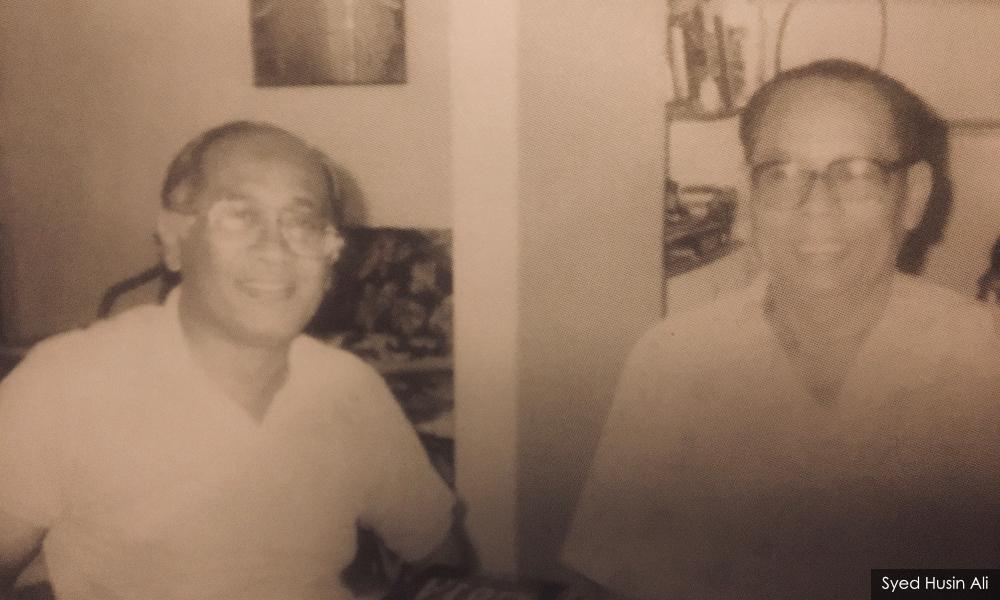
Syed Husin said that even though Singapore had its own Socialist Front at the time opposing the PAP, Said wanted to set up a parallel party to PRM in addition to Parti Rakyat Brunei, which won elections in Brunei under AM Azahari in 1962 but was never allowed to take office.
“As for Said, they arrested him the day after he was named president of the new party. He was arrested under Operation Coldstore and detained without trial for 17 years,” recalled Syed Husin.
At one point, Said’s poems were smuggled out and published by Syed Husin and other friends and it is said that a furious Lee Kuan Yew extended his detention by a few years because of it.
“Still, despite these challenges, I remember him smiling and laughing a lot. At the same time, he was a very intelligent editor who wrote very well in Malay, and quite well in English too,” said Syed Husin.
Samad Ismail (1924-2008) was a prodigiously talented writer, becoming a journalist at the age of 16 and editor of the Japanese-era publication Berita Malai by the age of 21. Aside from being a journalist, he was involved in his early years in left-wing political activities.
“Of all people, he told his lawyer Kuan Yew that he had been a member of the Communist Party and I believe this was used against him later. His alias was Lanaiz, which was Zainal spelt backwards,” said Syed Husin.
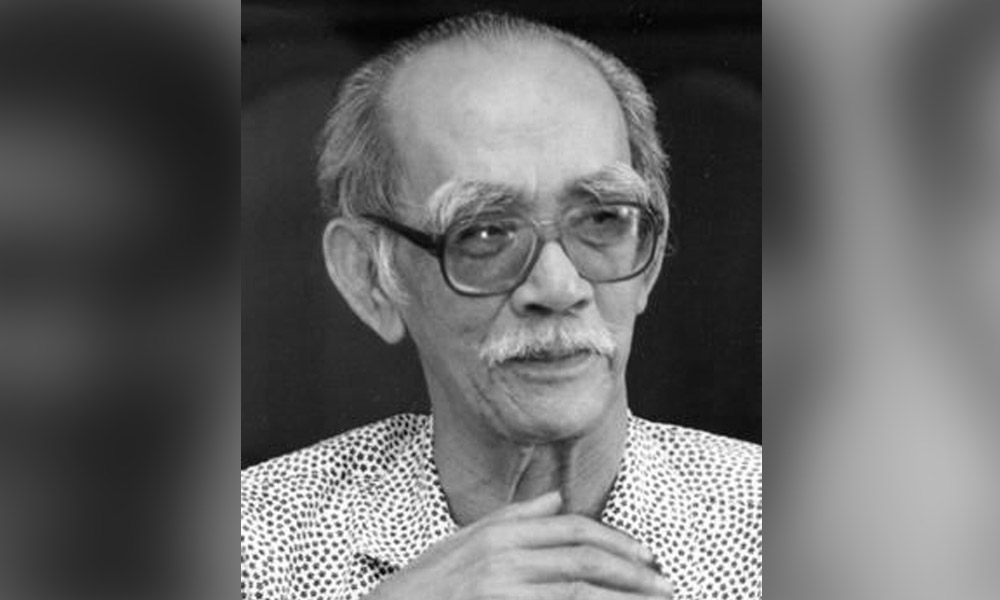
By the time Samad co-founded the PAP with Lee in 1953, he had already been detained twice before - in 1948 and 1953.
“At another stage, he was almost banished to Indonesia, but he came back and concentrated on newspaper work.
“He was a very ideological and analytical writer and went on to lead Berita Harian and the New Straits Times. In 1976, when I was already detained, Samad got detained again as well, this time for five years. But he bounced back again and regained a prominent footing.
“He was another person I really admired,” said Syed Husin.
Kamarulzaman Teh (1920-2002) was the longest-serving political prisoner in Malaysian history. As a youngster from Temerloh, he had followed Ahmad Boestamam into Angkatan Pemuda Insaf, leading that movement’s vibrant chapter in Pahang.
“When the emergency was declared in 1948, he was nabbed and there was a gun found on him. He was taken to court and sentenced to death,” said Syed Husin.
Unlike legendary unionist SA Ganapathy, who was hanged in May 1949 for a similar offence, Kamarulzaman’s life was spared.
“His father was quite close to the sultan and appealed for a pardon so his life was spared but he was detained, initially on life imprisonment. However, after 14 years he was released in 1962.
He then gravitated towards the Socialist Front, and was soon detained again and held for another eight years.
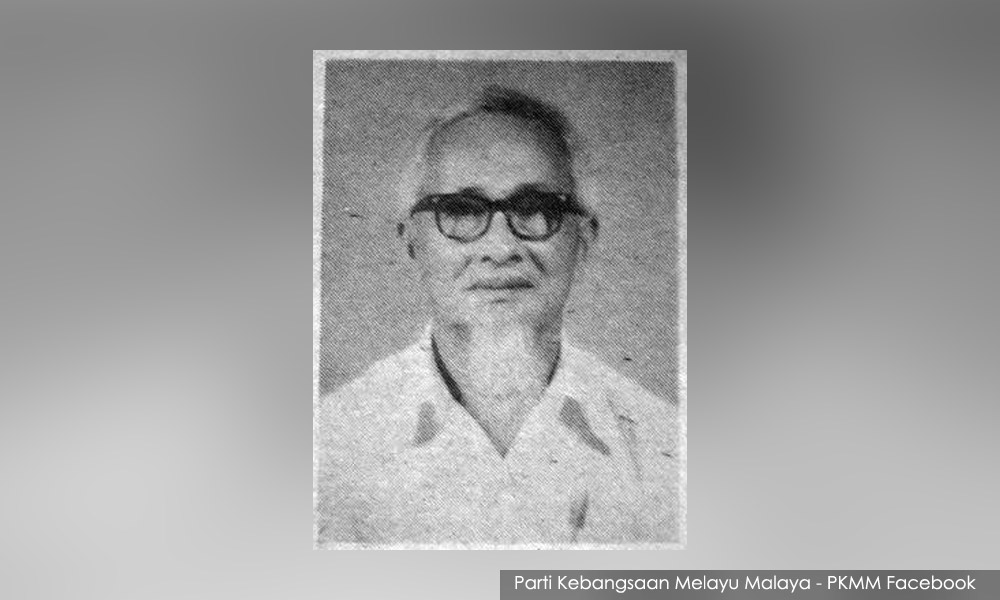
“After he was released, he did some private business in Pahang and he was a central committee member of Parti Socialist Rakyat Malaysia (PSRM) as PRM was known in the 1970s. He contested but lost in the 1974 election,” recalled Syed Husin.
“Eventually by the 1990s, his health was failing, and he eventually requested to go to southern Thailand, to the village where the 10th regiment of the Communist Party of Malaya had settled.
"That regiment was mainly Malay and had drawn many members from Temerloh, which was traditionally very leftist and anti-colonial. He was taken by Hamid Tuah’s daughter Siti Nor and managed to see old friends like Rashid Maidin and Abdullah CD, before passing away,” said Syed Husin.
Aziz Ishak (1914-1999) was arguably the most high-profile ISA detainee of his era, having served in Tunku Abdul Rahman’s first cabinet.
He was slightly aristocratic in his ways, yet his sympathy was with the common man, said Syed Husin.
“He had been Selangor Umno chief at the time of independence but had a socialistic mindset. Aziz had earlier been with Onn Jaafar, but Tunku brought him back into the fold and made him agriculture minister and he wanted to implement a lot of reforms.
“He then disagreed with Tunku, especially over the cooperative movement and rural development policies. At some point, he wanted to take over a British fertiliser company and Tunku decided to shift him to the Health Ministry. He resigned over it,” said Syed Husin.
Aziz then set up the National Convention Party and teamed up with the Labour Party and PRM in the Socialist Front coalition. His party was intended to appeal to the progressive Malay middle class, but before it got any further, Aziz was detained under ISA and it soon crumbled.
“He was the brother of Singapore’s first president, Yusof Ishak, and another brother of his, Rahim Ishak, was Singapore’s education and foreign affairs minister. All three had been journalists with Utusan Melayu,” said Syed Husin.
“Aziz didn’t change after detention but he stayed away from politics almost completely,” he added.
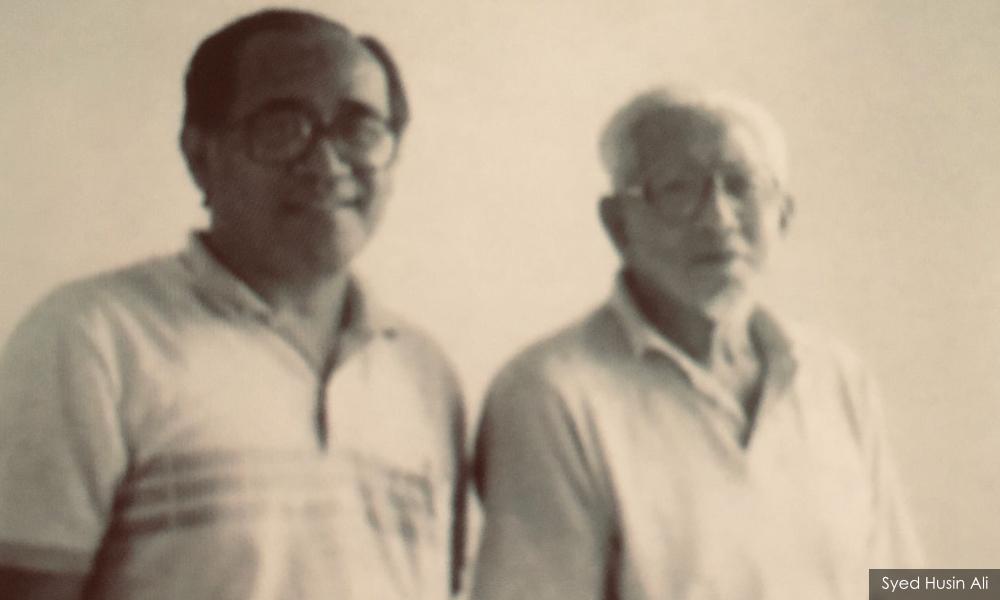
Dr Tan Chee Khoon (1919-1996) was known as Mr Opposition partly because he was consistently in opposition to the Alliance and BN – in three parties, the Labour Party of Malaya, Parti Gerakan Rakyat Malaysia and Parti Keadilan Masyarakat Malaysia (Pekemas).
In fact, he was elected as Batu MP in 1964 and 1969 and Kepong MP in 1974 representing each of these parties in succession.
“He was also at times the only representative of the opposition in the Selangor state assembly,” recalled Syed Husin.
“He was a good man, very concerned for the poor and noted for his principled stance. He was a steadfast Fabian socialist in the style of the British Labour Party but he was once defeated by a trishaw puller for the Selangor Labour Party chairperson post as they were ideological at the time and saw him as a revisionist.
“During the cultural revolution, some Labour Party people started to blindly follow the Chinese communists.
“Tan struggled against the tide to maintain left-wing unity. This was a time when the Labour Party was being infiltrated by both communists and the police’s Special Branch,” Syed Husin recalled.
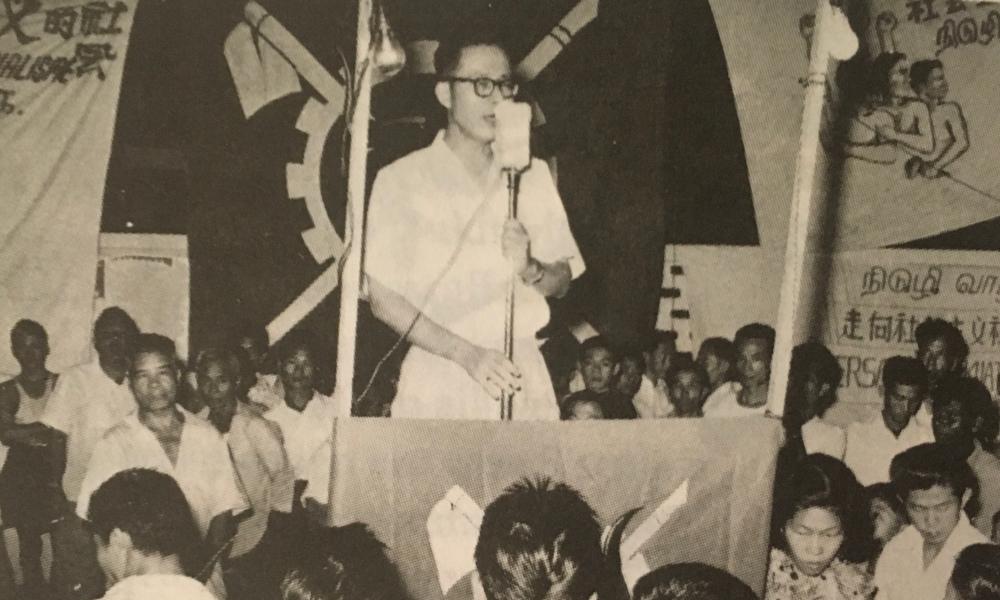
There were tensions at the time and the Socialist Front cracked.
“They had detained most of the leaders and a lot of good cadres too. They got the message to the people outside that the Labour Party was heavily infiltrated and that it would be safer for PRM to be on its own.
“Furthermore, Labour Party leader Lim Kean Siew and Boestamam had a conflict over language. Lim made the announcement that Malaysia should be multilingual, while Boestamam very much promoted Malay as the national language,” said Syed Husin.
Disillusioned with the Labour Party, Tan formed Gerakan along with former MCA president Lim Chong Eu, intellectual Syed Hussein Alatas and a number of Labour Party stalwarts like V David and Ganga Nayar.
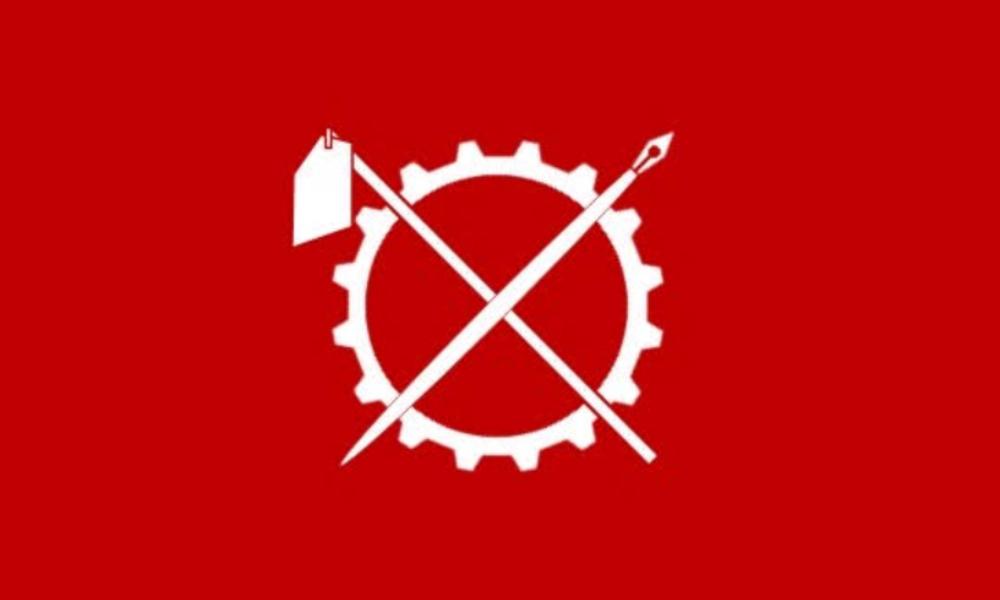
However, despite an electoral triumph in Penang in 1969, he was dismayed when Lim later brought the party into BN, and proceeded to set up Pekemas.
Tan was the only successful candidate from that party, which folded within a few years with proteges like Tan Seng Giaw joining DAP.
Tan’s own son Tan Kee Kwong later served as Segambut MP in the 1990s, representing Gerakan and Wangsa Maju MP from 2008-2013 under the PKR banner.
Dr MK Rajakumar (1932-2008) was both a committed socialist and an important voice in the medical profession in newly independent Malaysia. He was also a great friend of Syed Husin.
“I was his housemate for quite some time as (prominent civil servant) Agoes Salim and I were staying with Kassim Ahmad in PJ, but he had gotten married. We were squatting in Ungku Omar’s house for a while and then we found out that Rajakumar’s house was empty as he was in Singapore. We managed to get the keys – so he came back to find he had new housemates!” said Syed Husin with a laugh.
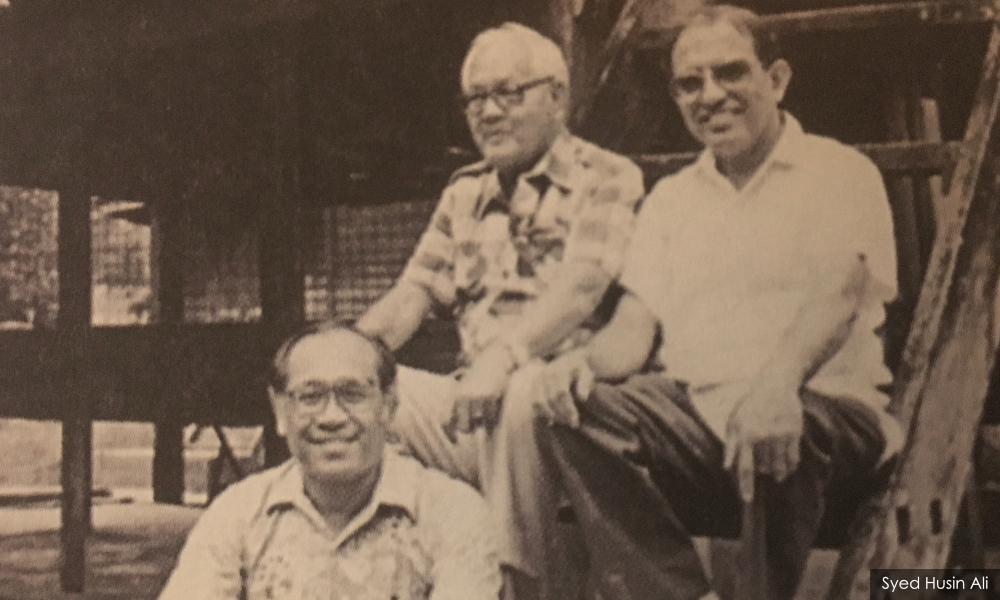
“Rajakumar was a very intelligent person, and of course first ran into trouble with the University Socialist Club in 1954 when he and eight other students were charged with sedition in Singapore. They were acquitted thanks to the British leftist lawyer DN Pritt, although Lee Kuan Yew also made his name assisting Pritt.
“In the Labour Party in the 1960s, he was considered to be the theoretician, albeit not at the forefront. One thing about Rajakumar was that he could foresee what was coming and in many cases, he was right.
“Rajakumar wrote very well and spoke very well but was never fierce. When he came out of detention and the Labour Party folded, he devoted himself more fully to an outstanding career in medicine, occupying many important positions such as Malaysian Medical Association president,” said Syed Husin.
PG Lim (1915-2013) came from a family very well known for activism. Her brothers were two-term Labour MP for Datuk Keramat Lim Kean Siew and Lim Kean Chye, who is now over 100 years old. All three studied law at Cambridge in the 1930s.
“I was quite close to her for a while and we became closer after the Utusan strike. She even helped a bit – together with Rajakumar and myself – when we started a move to open up a newspaper to replace Utusan after the Umno takeover.
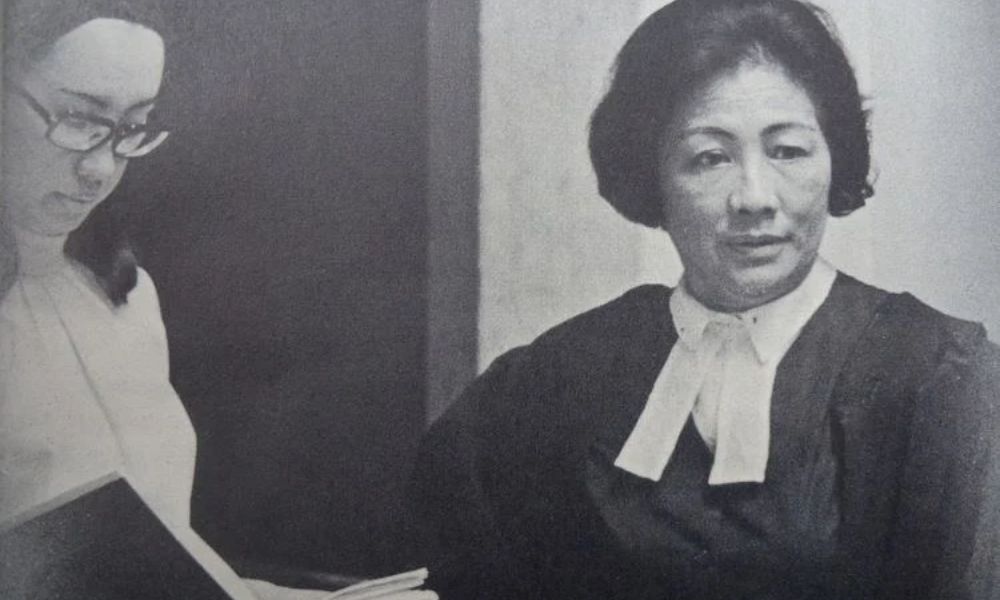
“We did not succeed for two reasons – it was expensive and we had no licence. After failing with a Malay paper, we bought an English paper, but it did not work out either.
“PG Lim ran in an election but didn’t win and later after the Labour Party closed its shutters, she had a number of prominent roles, chairing the arbitration board, being a member of the post-1969 riots National Operations Council and then enjoying a long diplomatic career, been posted to the UN and the EU,” related Syed Husin.
Asri Muda (1923-1992) was another national firebrand who was in Angkatan Pemuda Insaf (API) with Ahmad Boestamam, but took a different path, joining PAS and winning a number of terms as MP from different constituencies in Kelantan.
“Asri was the leader of PAS after Burhanuddin (al-Helmy), and went on to be Kelantan menteri besar and later a federal minister when PAS joined BN.
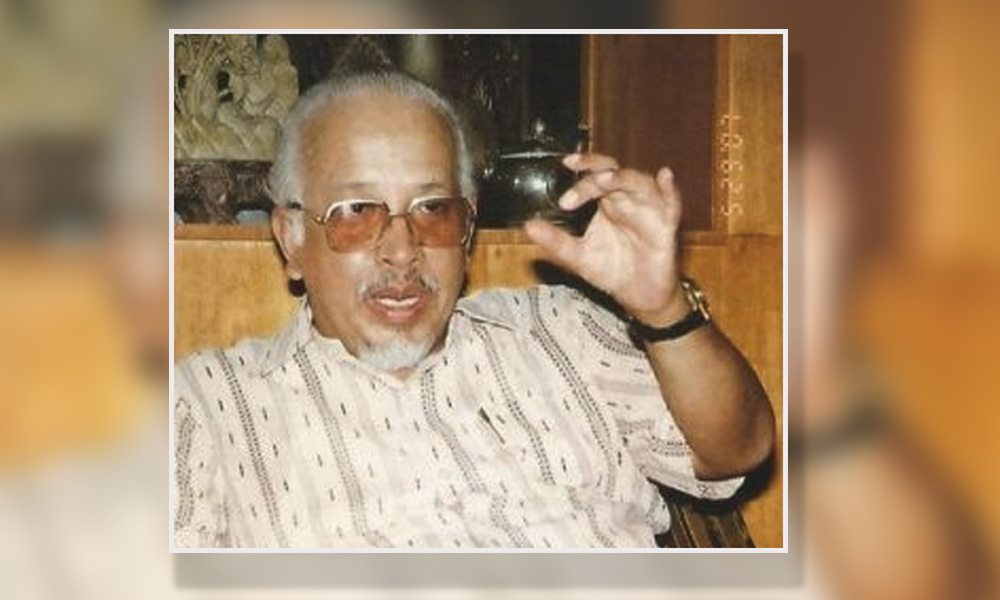
“He was a modernist. Not a very conservative type of PAS leader – and he persuaded them to team up with Umno, for which he was not liked very much. Following the Iranian revolution and the rise of more fundamentalist politics in PAS, he was replaced by Yusof Rawa.
“Asri was indeed a good orator, sometimes electrifying. It is said that whenever Asri spoke, (former deputy prime minister) Tun Dr Ismail (Abdul Rahman) would make sure that he was present. Asri spoke a lot of sense,” said Syed Husin.
V David (1932-2005) was very well known as a trade unionist who led the Transport Workers Union and was also MTUC secretary-general.
“Like Karam Singh, he entered Parliament very young. He was 26 when he won the Bungsar parliamentary seat and Pantai state seat in the 1959 elections for the Labour Party.
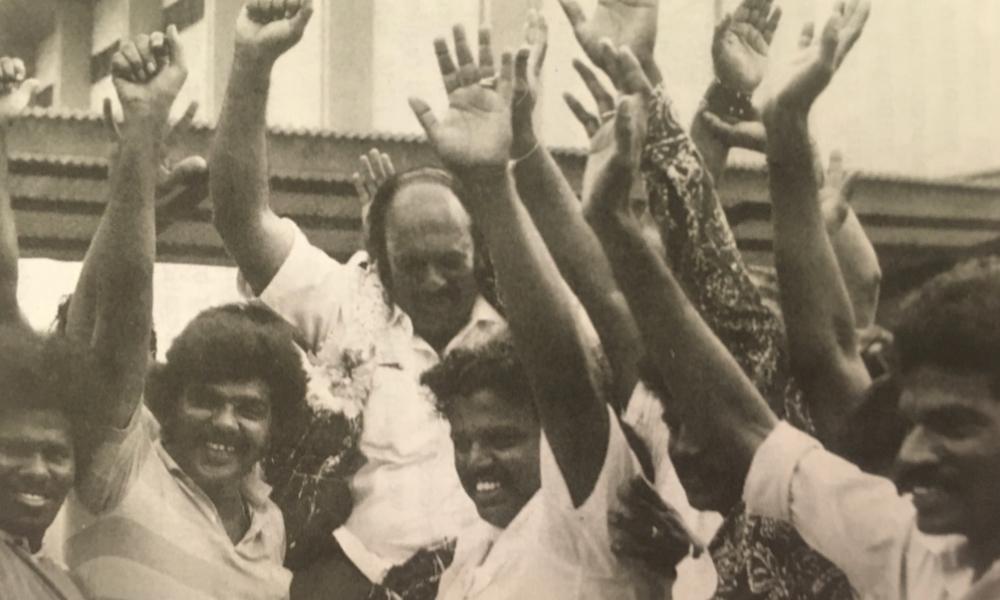
"He is mostly known as a unionist and also a very active MP. He was well-known for having the record number of questions in Parliament,” recounted Syed Husin.
“Politically, David moved along with Chee Khoon to form Gerakan and they left to be in Pekemas. Unlike Chee Khoon, David then joined DAP and enjoyed a number of victories later on, as well as another spell in detention due to Ops Lalang in the 1980s,” Syed Husin added.
“He was a huge person and a very dominating figure, but humble and down to earth. I had never seen him be angry. As I recall, he always had a smile for everybody.”
This article is part 2 of a three-part interview with Syed Husin Ali, an icon of Malaysian progressive politics for most of his life. He turns 85 on Sept 23.

